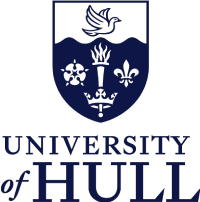Dr J Castronovo
No more applications being accepted
Competition Funded PhD Project (Students Worldwide)
About the Project
To celebrate the University's research successes, the University of Hull is offering one full-time UK/EU PhD Scholarship or International Fees Bursary for candidates applying for the following project
Closing date: - 2nd February 2015.
Studentships will start on 28th September 2015
When starting school, children present wide individual differences in their early mathematical skills, such as counting and addition. These early differences have long-term consequences for children’s mathematical achievement throughout their school years, but also later in life (e.g., employment opportunities). These differences in early mathematical skills can be accounted for by several factors (e.g., family income level). But more importantly for the current project, early individual differences in children’s mathematical achievement have been linked to individual differences in their Approximate Number System acuity. The Approximate Number System (ANS) allows humans to roughly estimate and calculate quantities. The ANS is assumed to serve as a cognitive foundation for the elaboration of more-advanced mathematical abilities (e.g., preschool children’s ANS acuity predicts their later mathematical achievement). Importantly, training the ANS has also been found to improve both ANS acuity and mathematical achievement. The focus of the current research is to train children’s ANS with the introduction of a novel multisensory approach to improve their core foundational numerical skills, and accordingly their mathematical achievement. Recent research shows that multi-sensory stimulation facilitates approximate numerical processing. Therefore, we predict that a multisensory intervention will help children develop greater ANS acuity and consequently greater mathematical achievement.
This research project is of high significance: it has strong potential to benefit children and teachers in numeracy education; new effective interventions in teaching numeracy would lead to better outcomes for both individuals and the wider society; and a multisensory numerical intervention could be used in therapy programmes for children with mathematical learning difficulties.
www.hull.ac.uk/phd
In order to qualify for this scholarship you will require a first class BSc in Psychology. A strong background in cognitive and developmental psychology would be beneficial, as well as experience with programming experimental software.
Full-time UK/EU PhD Scholarships will include fees at the ‘home/EU' student rate and maintenance (£13,863 in 2014/15) for three years, depending on satisfactory progress.
Full-time International Fee PhD Studentships will include full fees at the International student rate for three years, dependent on satisfactory progress.
PhD students at the University of Hull follow modules for research and transferable skills development and gain a Masters level Certificate, or Diploma, in Research Training, in addition to their research degree.
Successful applicants will be informed of the award as soon as possible and by 17th April 2015 at the latest.

 Continue with Facebook
Continue with Facebook

